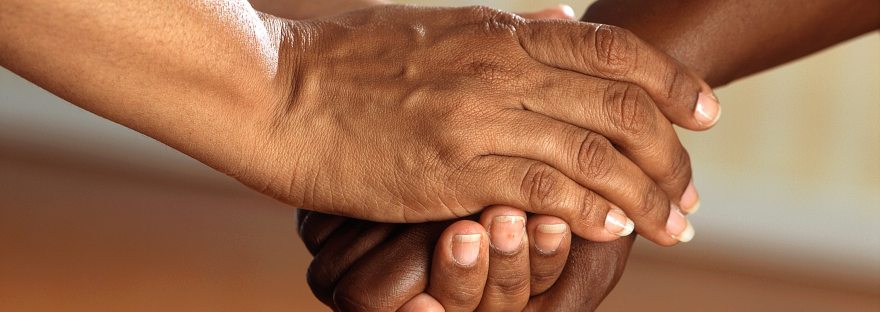Update: I wrote this on 3/9/2020, in the back of my mind deeply troubled about a few things. These things still trouble me.
One is racism and subsequent scapegoating and avoidance of Chinese people (and people of color of many ethnicities who may be misperceived as Chinese). Another is the cultural memory of the AIDS crisis and people dying with few willing to even hold their hands to comfort them, and the continuance of stigmas against HIV+ people even today. It’s different. I know it’s different. But I don’t like people being treated as walking contaminants, and marginalized communities are most targeted for this.
That said, today (3/17/2020), I feel it’s important to mention I don’t really know what to think now about COVID-19, which has now become an official pandemic. The idea that deliberate “social distancing” will “flatten the curve,” reduce the strain on overwhelmed healthcare systems, and therefore save lives seems reasonable, even though this explanatory model assumes a 100% contagion rate which isn’t true to life. Slowing the exponential spread nonetheless makes sense to me. My state currently recommends canceling gatherings of 50+ people.
Ultimately, I didn’t have enough information when I wrote this post, and I still don’t. Were my words and actions excessively risky for a larger collective of people? Were my words and actions compassionate and reasonable? I just don’t know. Things are changing every day. Take everything I write with a grain of salt.
Update (4/13/2020): And here we are. Things are different now. I’m leaving this post up for history and accountability, but protecting the lives of the most vulnerable people clearly needs to be a priority right now.
Some people don’t like to be touched for any number of reasons, and that’s fine. A lot of people are wary about touching other people right now because of COVID-19, and that’s fine too.
I’m not going to touch someone who doesn’t want to be touched, and some days I don’t feel huggy either. But I want to talk about fear-based messages, the biological human need for touch, and my own intentional choice to continue affectionate, non-sexual touch with consenting people.
Yesterday, I encountered a lonely, isolated, older woman.
She was devastated that during church services, her congregation’s usual practice of shaking hands with each other or embracing was forbidden by church leaders. This hand grasping during church was, I think, her only regular human physical contact. She did not demand anything nor touch me without asking, but after sharing her grief over this, she asked if I was comfortable and willing to hold her hands. Yes, I was. We squeezed hands for a few moments and talked about the importance of touch for human beings. She was filled with obvious relief.
Autonomic nervous system function and other necessary-for-life functions in the human body (like blood circulation, and infants being able to grow and gain weight) are associated positively with skin-to-skin contact in medical studies. Deprivation from tactile affection even in adults is correlated with mental health issues and immune system problems. Touch reduces cortisol levels, which in turn could lead to better stability for all kinds of medical conditions, including heart and blood pressure disease.
One of the inhumane cruelties of solitary confinement in the prison system is this lack of human touch, as well.
I get that in the context of coronavirus, some people (especially immunocompromised people) want to avoid touching others for their own safety (yep makes sense!). I get that some people want to avoid touching others for others’ safety (in case at-risk people will be hurt, which also makes sense!).
For both these groups, brainstorming ways to mediate touch starvation might be beneficial: service animals or pets? Weighted blankets to stimulate the vagal system and reduce stress by increasing proprioception? Medical massage in a facility with excellent, sterile practices? Even huggable communication devices (discussed in the above cortisol study)? At the very least, it’s important to reach out emotionally to those who must avoid physical touch.
At the same time, I’m not a fan of fear-based messaging in the media and from leaders (whether that’s the government, or community leaders) about never touching other people. I will follow basic, healthy practices to prevent the spread of infection, and if symptomatic I will stay home, but for me personally, I don’t believe preventative total physical isolation is a healthy action to take.
If someone wants basic human touch and I also want that, you will catch me holding people’s hands, hugging, rubbing people’s backs, braiding or trimming people’s hair, giving sore shoulders a massage, and so on, and often consenting to the same, with a wide variety of friends, family, and even strangers for some of these things, if we feel so inclined.
If some of these loved ones or strangers are immunocompromised elders (who are most at risk of dying from illness), and they of their own free will still say, you know what, I would like to be embraced, or I would like to grasp your hand, because it makes their life worth living or increases their quality of life, I’m going to do that too. I’m a former hospice worker, which undoubtedly influences my viewpoint. But for me, there are lots of ways people can possibly, maybe, potentially die, and I would rather value day by day, moment to moment choices.
The takeaway: respect and support people who avoid touch for any reason, but if you want to and can express consensual tactile affection? This is life-sustaining too.
Maðr er manns gaman
Humans are the delight of humans
Icelandic rune poem: Mannaz
(If you enjoyed this article, please share, subscribe, and consider leaving a small tip or purchasing from my Etsy shop to support future works. Thank you!)


